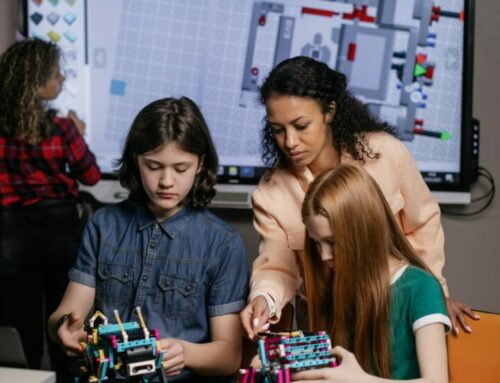How Sociable are You? How Much Does it Matter?
Patrick Blessinger
International HETL Association
Like many of my fellow educators, my academic training consisted mainly in developing cognitive abilities with scant regard to the role emotions play in the learning process. But in my role as a teacher, I have come to realize that emotions do play a large part in the learning process. This has required me to change my way of thinking about my role as a teacher in the teaching-learning process and about how I engage socially with students in and out of the classroom.
Dr. William Kennedy, Director of Michigan Tech’s Center for Teaching and Learning, provides an insightful article about the relationship between learning and emotions. In essence, he notes that our emotions, and hence our sociability, is hardwired into our brains. Hence, teaching and learning is, to some degree, not just a cognitive process but also a psychosocial process.
Dr. Kennedy observes that,
Entrepreneurs, politicians, physicians and artists all know that appealing to reason without simultaneously engaging the emotions is nearly always a losing proposition. One can’t help but wonder how long it will take for members of the academy to recognize that some portion of student failure is clearly due to the lack of emotional engagement rather than a lack of intellectual ability.
So, how should we engage the emotions and make the teaching-learning process more sociable? Perhaps it starts with learning to be more comfortable “in our own skins” when interacting with students. Perhaps it also starts with accepting the premise that learning involves the whole person. Let me offer a few practical and painless ways in which we can develop our sociability with students.
- Take time to learn all your students’ names and call them by their first name when talking with them. For instance, when asking your students a question in class, call them by their first name. This will help “humanize” the teacher-student relationship and begin to build mutual respect. You say, “but I have a hundred students in my classes and I can’t learn all their names”. Sure you can! Learning a list of names should not be a difficult task. Furthermore, you can make it a fun challenge to see how fast you can remember all their names. An interesting video interview with Dr. Cynthia Green provides some practical tips on how to remember names. Also, see the previous ProfHacker article on the topic written by Natalie Houston.It is important for us to remember that one of the most important things about each of us is our name – it represents our identity and our uniqueness. So, doing something as simple as remembering a person’s name can have a positive effect psychologically – it sends the tacit message that you respect them as students.
- Consider using questions during your classroom lectures to more actively engage students in what you are explaining to them. The simple act of asking a question serves to both engage students more actively in the learning process as well as allows you as the teacher to better assess if they are really “getting it”. The Teaching Center at Washington University in St. Louis offers a practical and yet scholarly guide on how to ask questions to improve learning. Also be sure to read the Increasing Student Participation page on the importance of using students’ names when asking them questions.
- Try to meet with each of your students at least once outside the classroom during the semester. Perhaps you can schedule a time to meet with each student individually for 10 minutes to address any concerns they have and to briefly assess the progress they are making in your class. Or you can meet with them in small groups if they are doing group-based assignments. Doing this also sends the tacit message that you are concerned about their progress. Showing your concern and “humanizing” the teacher-student relationship does not diminish the appropriate teacher-student roles and boundaries.
If sociability is indeed one of the keys to better engaging students in the learning process, then perhaps we as educators would do well to develop (in us and in our students) not just cognitive intelligence but also “emotional intelligence.”
Note: this article also appears in the Chronicle of Higher Education blog at http://chronicle.com/blogs/profhacker/how-sociable-are-you-how-much-does-it-matter/33451
Suggested Citation:
Blessinger, P. (2012). How sociable are you? How much does it matter? Higher Education Tomorrow, Volume 1, Article 1, https://www.patrickblessinger.com/how-sociable-are-you-how-much-does-it-matter
Or
Blessinger, P. (2012). How sociable are you? How much does it matter? Chronicle of Higher Education, http://chronicle.com/blogs/profhacker/how-sociable-are-you-how-much-does-it-matter/33451
Copyright © [2012] Patrick Blessinger
Disclaimer
Opinions expressed in this article are those of the author, and as such do not necessarily represent the position(s) of other professionals or any institution.



